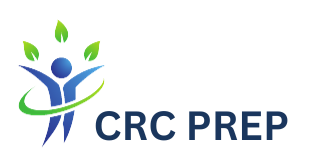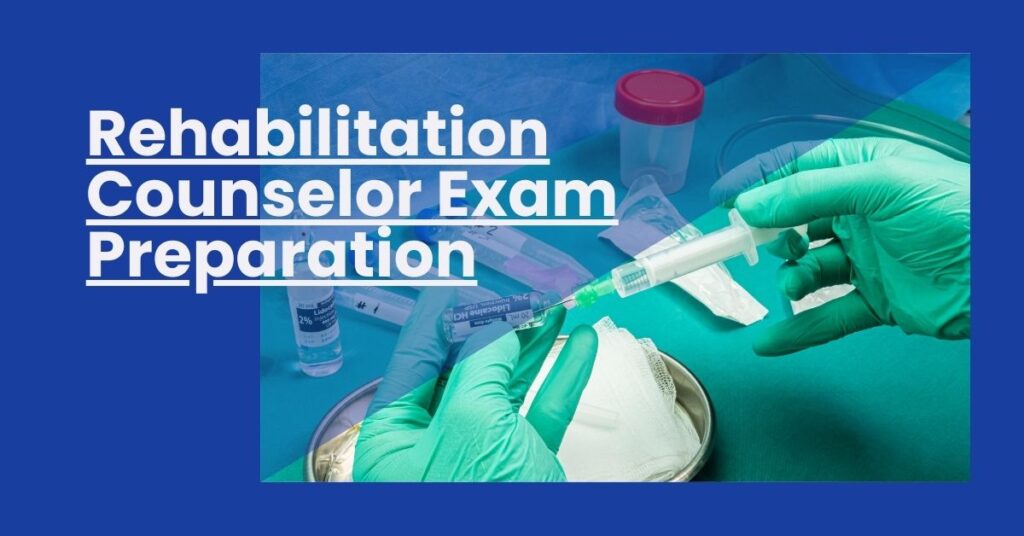Master your rehabilitation counselor exam preparation with our tailored guide for success.
- Eligibility Criteria: Understand the pre-requisites to ensure you’re qualified to take the exam.
- Study Material: Access top-notch resources to enhance your learning experience.
- Practice Tests: Utilize practice exams to sharpen your test-taking ability.
Secure your professional future with effective rehabilitation counselor exam strategies.
Understanding the Rehabilitation Counselor Exam
As a professional passionate about helping individuals with disabilities achieve their personal, career, and independent living goals, you’re ready to take the next crucial step – the rehabilitation counselor exam. This exam is your gateway to becoming a Certified Rehabilitation Counselor (CRC), a testament to your expertise and dedication in the field.
The Exam at a Glance
Before diving into the preparation aspect, let’s demystify the exam itself. It is designed to assess your comprehensive knowledge and skills in two primary sections: Rehabilitation and Disability (R), and Counseling (C). Each section covers multiple knowledge domains shaped by the latest practices in the field.
To assist you in orienting yourself with the exam’s scope, it’s invaluable to look at the CRC Exam Overview, where you’ll find an explicit breakdown of the knowledge domains and a description of the conjunctive scoring model used, which requires proficiency across all areas for a passing score.
Why It Matters
Achieving certification isn’t just about passing a test; it’s a milestone in a rehabilitation counselor’s career. Beyond the personal satisfaction, being a CRC signifies your commitment to the highest standards of practice, opens up new career pathways, and may even be a prerequisite for certain roles within the industry.
Developing a Study Plan
Creating a focused and realistic study plan is pivotal for your exam success. With extensive material to cover, your plan should be both thorough and flexible, ensuring that you digest all the information without overwhelming yourself.
Mapping Your Study Timeline
Consider the following steps to shape your study plan:
- Set Clear Goals: Determine what topics need the most attention and allocate more time to them.
- Consistency is Key: Aim to study regularly, instead of cramming sessions.
- Plan for Breaks: Include short intervals to rest and recharge – your brain will thank you.
- Test Your Knowledge: Weave in frequent self-assessment to gauge your progress and adaptation needs.
A detailed plan is more than a schedule; it’s your roadmap to confidence and comprehension. In crafting your strategy, resources such as the CRC Exam Prep Tools can help tailor your study activities to the targeted domains.
Importance of Practice Tests and Self-Assessment
Practice is the cornerstone of preparing for the rehabilitation counselor exam. It’s not merely about learning the material but also mastering the application of knowledge under exam conditions.
Practice Tests: Emulating the Exam Experience
Practice exams offer multiple benefits, including:
- Familiarizing Yourself with the Format: Understanding the structure and types of questions.
- Time Management Skills: Getting a real sense of the pace you need to maintain.
- Identifying Strengths and Weaknesses: Highlighting areas where further study is required.
Taking a variety of practice tests emulates the challenge you’ll face, building your confidence with each attempt. It’s crucial to simulate the exam environment as closely as possible, so you feel at ease on the day itself.
Self-Assessment: Sharpening Your Focus
As you progress with your studies, self-assessment tools can pinpoint your proficiency in the various knowledge domains. It enables you to adjust your study plan dynamically, investing more time where needed. Regular self-assessment updates your understanding of your preparedness level and helps maintain your study momentum.
Among the resources at your disposal, you’ll find the Certified Rehabilitation Counselor Examination Preparation book a remarkable investment. This comprehensive guide not only presents reflective questions but also furnishes you with a mock exam to practice, further ingraining the knowledge you’ve gathered and bolstering your exam day performance.
Incorporating practice tests and self-evaluation into your rehabilitation counselor exam preparation strategy enhances your ability to tackle the real exam with poise and assurance. Remember, the objective is not just to pass, but to excel, showcasing the full scope of your capabilities in rehabilitation counseling.
Exam Content and Blueprint
A well-laid-out blueprint for the rehabilitation counselor exam can make your preparation journey less daunting. Let’s delve into the content areas of the exam, allowing you to orient your studies accordingly and make the most of your time.
Areas of Focus
The exam is multidimensional, assessing knowledge over several domains. Expect to find a blend of theoretical knowledge and practical application modes. Here’s what you need to stake out in your studies:
- Ethical and Professional Standards: Understanding the principles that define professional practices.
- Case and Caseload Management: Managing and implementing client support through different phases of the rehabilitation process.
- Counseling and Consultation: Fostering effective relationships and delivering appropriate counseling techniques.
Knowing these content areas helps you assign your study time based on not just the weight of each domain in the exam but also your personal familiarity with them.
Test-Taking Strategies
Walking into your certification exam, it’s not just what you know, it’s also how you apply that knowledge under exam conditions. Think of strategies as your toolkit for translating your learning into correct answers.
Time Management
Mastering the pace of your responses is vital. Remember these points:
- Survey the Whole Test: Before starting, quickly scan through the test to understand the layout and allocate your time wisely.
- Answer What You Know First: Don’t stall on tricky questions. Mark them and return after you’ve tackled the more straightforward items.
Question Approaches
In interpreting test questions, a few strategies can help:
- Eliminate Obviously Wrong Answers: Narrow down your choices as much as possible.
- Consider All Information Provided: Sometimes the context within the question holds the clue to the correct answer.
Be careful not to overthink the questions. The straightforward answer is often the right one.
Handling Test Day
Feel Prepared
All your hard work boils down to one consequential day. Your routine on this day should be designed to keep you calm and collected:
- Have a Good Meal: Nutrition is crucial. A hearty breakfast or lunch can help sustain your concentration.
- Arrive Early: Familiarize yourself with the testing center to minimize any last-minute anxiety.
Remember, this step is about demonstrating your ability to synthesize the core knowledge of your field into practice.
Post-Exam Processes
The Moment of Truth
What happens after you put down your pencil? Understanding the scoring system will prepare you for the outcomes. Here are a couple of pointers:
- Initial Feedback: Often, a preliminary score is provided upon completion.
- Official Results: Expect an official report to be sent within the outlined timeline post-exam.
Should you need a retake, view it not as a setback but as another opportunity to showcase your growth.
Additional Resources and Support
Creating your support structure is key to navigating the realm of rehabilitation counselor exam preparation. Leverage the collective knowledge and experiences by:
- Community Forums: Online communities provide a wealth of shared experiences and advice.
- Study Groups: Partnering with peers can help clarify complex material and hold you accountable.
From seminars to workshops, the additional resources allow for a more dynamic and interactive study experience.
Conclusion
As you approach the day of your examination, it’s crucial to remember that the journey to certification is as much about personal growth as it is about professional validation. With a solid foundation in the core content areas, tested through your mock exams and practice, complemented by strategic test-taking techniques, and the right mindset on exam day, you stand poised to not just succeed, but excel.
May your dedication to empowering others through your role as a rehabilitation counselor be reflected in your preparation efforts. Your future clients will undoubtedly benefit from the commitment and expertise that a CRC credential represents. Best of luck, future Certified Rehabilitation Counselor!
Rehabilitation counselor exam preparation guide with tips, study resources, and strategies for a successful test performance.

